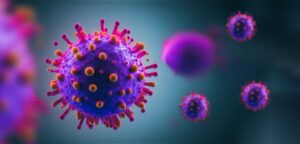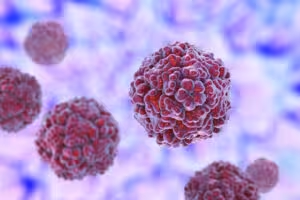Towards the end of 2002 reports began to emerge from China of a virulent and potentially fatal respiratory disease that was proving highly resistant to treatment. The Chinese authorities were slow to alert the world to what quickly became a major health crisis. The World Health Organization (WHO), by contrast, fearing a global pandemic, acted swiftly in drawing up and implementing a plan to combat the spread of what became known as SARS (Severe Acute Respiratory Syndrome).
The SARS virus had originated in the Guangdong Province in southern China, where a large rural population of peasants lived in close contact with animals. Scientists believe that the animals had been carrying the virus and that at some stage it must have leapt the species barrier to infect humans. Reported symptoms were similar to flu and included a high fever, breathing difficulties, dry cough, muscular aches and loss of appetite. In a remarkable example of international cooperation the WHO organized a worldwide coalition of scientists who worked resolutely to identify the cause of the disease and devise treatment programs. SARS was found to be caused by a previously unknown type of coronavirus, a form of animal virus which infects the upper respiratory tract. Although the virus was spread like the common cold, it was not as contagious as initially feared, and rigorous infection control and preventative measures meant that the vast majority of cases were restricted to the Far East. Nevertheless, international air travel led to smaller outbreaks also occurring in other parts of the world, such as Canada, before the WHO was able to declare in July 2003 that the epidemic had been contained.
When: November 2002 to July 2003
Where: Worldwide, but predominantly in the Far East (China, Taiwan, Vietnam and Singapore)
Death toll: According to the WHO, over 8,000 people are known to have been infected with the SARS virus during the outbreak, of which some 750 died. Although this represents less than 10 per cent of infected cases, the mortality rate was much higher among older people.
You should know: Although in the end no specific treatment was found to be particularly effective against SARS, scientists were helped in their investigations by the fact that the virus barely mutated from the moment when it emerged.






















